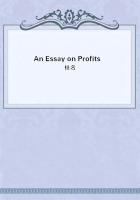WHAT THE ASIKA SHOWED ALAN
It seemed to Alan that he went to sleep and dreamed.
He dreamed that it was late autumn in England. Leaves drifted down from the trees beneath the breath of a strong, damp wind, and ran or floated along the road till they vanished into a ditch, or caught against a pile of stones that had been laid ready for its repair. He knew the road well enough; he even knew the elm tree beneath which he seemed to stand on the crest of a hill. It was that which ran from Mr.
Champers-Haswell's splendid house, The Court, to the church; he could see them both, the house to the right, the church to the left, and his eyesight seemed to have improved, since he was able to observe that at either place there was bustle and preparation as though for some big ceremony.
Now the big gates of The Court opened and through them came a funeral.
It advanced toward him with unnatural swiftness, as though it floated upon air, the whole melancholy procession of it. In a few seconds it had come and gone and yet during those seconds he suffered agony, for there arose in his mind a horrible terror that this was Barbara's burying. He could not have endured it for another moment; he would have cried out or died, only now the mourners passed him following the coffin, and in the first carriage he saw Barbara seated, looking sad and somewhat troubled, but well. A little further down the line came another carriage, and in it was Sir Robert Aylward, staring before him with cold, impassive face.
In his dream Alan thought to himself that he must have borrowed this carriage, which would not be strange, as he generally used motors, for there was a peer's coronet upon the panels and the silver-mounted harness.
The funeral passed and suddenly vanished into the churchyard gates, leaving Alan wondering why his cousin Haswell was not seated at Barbara's side. Then it occurred to him that it might be because he was in the coffin, and at that moment in his dream he heard the Asika asking Jeekie what he saw; heard Jeekie answering also, "A burying in the country called England."
"Of whom, Jeekie?" Then after some hesitation, the answer:
"Of a lady whom my lord loves very much. They bury her."
"What was her name, Jeekie?"
"Her name was Barbara."
"Bar-bara, why that you told me was the name of his mother and his sister. Which of them is buried?"
"Neither, O Asika. It was another lady who loved him very much and wanted to marry him, and that was why he ran away to Africa. But now she is dead and buried."
"Are all women in England called Barbara, Jeekie?"
"Yes, O Asika, Barbara means woman."
"If your lord loved this Barbara, why then did he run away from her?
Well, it matters not since she is dead and buried, for whatever their spirits may feel, no man cares for a woman that is dead until she clothes herself in flesh again. That was a good vision and I will reward you for it."
"I have earned nothing, O Asika," answered Jeekie modestly, "who only tell you what I see as I must. Yet, O Asika," he added with a note of anxiety in his voice, "why do you not read these magic writings for yourself?"
"Because I dare not, or rather because I can not," she answered fiercely. "Be silent, slave, for now the power of the good broods upon my soul."
The dream went on. A great forest appeared, such a forest as they had passed before they met the cannibals, and set beneath one of the trees, a tent and in that tent Barbara, Barbara weeping. Someone began to lift the flap of the tent. She sprang up, snatching at a pistol that lay beside her, turning its muzzle towards her breast. A man entered the tent. Alan saw his face, it was his own. Barbara let fall the pistol and fell backwards as though a bullet from it had pierced her heart. He leapt towards her, but before he came to where she lay everything had vanished and he heard Jeekie droning out his lies to the Asika, telling her that the vision he had seen was one of her and his master seated with their arms about each other in a chamber of the Golden House.
A third time the dream descended on Alan like a cloud. It seemed to him that he was borne beyond the flaming borders of the world.
Everything around was new and unfamiliar, vast, changing, lovely, terrible. He stood alone upon a pearly plain and the sky above him was lit with red moons, many and many of them that hung there like lamps.
Spirits began to pass him. He could catch something of their splendour as they sped by with incredible swiftness; he could hear the music of their laughter. One rose up at his side. It was the Asika, only a thousand times more splendid; clothed in all the glory of hell.
Majestically she bent towards him, her glowing eyes held his, the deadly perfume of her breath beat upon his brow and made him drunken.
She spoke to him and her voice sounded like distant bells.
"Through many a life, through many a life," she said, "bought with much blood, paid for with a million tears, but mine at last, the soul that I have won to comfort my soul in the eternal day. Come to the place I have made ready for you, the hell that shall turn to heaven at your step, come, you by whom I am redeemed, and drive away those gods that torture me because I was their servant that I might win you."
So she spoke, and though all his soul revolted, yet the fearful strength that was in her seemed to draw him onward whither she would go. Then a light shone and that light was the face of Barbara and with a suddenness that was almost awful, the wild dream came to an end.
Alan was in his own room again, though how he got there he did not recollect.
"Jeekie," he said, "what has happened? I seem to have had a very curious dream, there in the Treasure-place, and to have heard you telling the Asika a string of incredible falsehoods."















